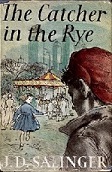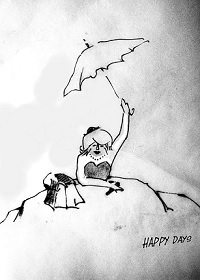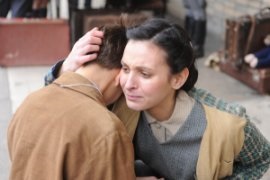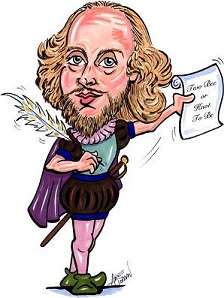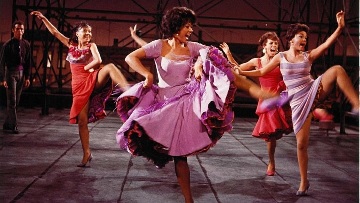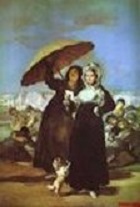Editor's Page
The Military-industrial Complex and the Forces of Evil as Personified by
Donald J. Trump
President Dwight D.
Eisenhower coined the term Military-Industrial Complex on January 17,
1961, by warning that the United States' military spending was more
than that of the next thirteen countries combined. Eisenhower was no
starry-eyed tree-hugger; rather was he the victorious Allied
Commanding General in World War II; one could say that after years in
the presidency he knew what he was talking about. But how can it be
explained? At the end of the Second World War, the United States was
the only one of the great powers left standing on its own feet. It
had been a determining force in winning the wars against Nazi Germany
and Imperial Japan, mostly because of its extraordinary industrial
ability to produce weapons – including, sadly, the atomic
bombs, dropped needlessly on Japan, when President Truman and his Air
Force generals became mass murderers...
Continue reading
Current Events
The Norwegian Menace - Should We Build a Wall to keep Them Out? by Ann Jones
 Oslo Oslo |
In the past couple of weeks, thanks to
the president’s racist
comments about Haiti and African countries he
can’t even name -- remember “Nambia"?
-- as well as the stamp of approval he awarded future immigrants from
Norway, we’ve seen a surprising amount
of commentary about that fortunate country. Let me just say: those
Norwegians he’s so eager to invite over are my ancestral people
and, thanks to years I’ve spent in that country, my friends.
Donald Trump should understand one thing: if he and his
Republican backers really knew the truth about life in Norway, they
would be clamoring to build a second “big,
fat, beautiful wall", this time right
along our Eastern seaboard. One thing is incontestable: a mass of
Norwegian immigrants (however improbable
the thought) would pose a genuine threat to Donald Trump’s
America. They would bring to our shores their progressive
values, advanced ideas, and illustrious model
of social democratic governance -- and this country would never be
the same!
Continue reading
Our Enemy, Ourselves - Ten
Commonsense Suggestions for Making Peace, Not War by William J. Astori
Whether the rationale is the need to
wage a war on terror involving
76 countries or renewed preparations for a
struggle against peer competitors Russia
and China(as Defense Secretary James Mattis
suggested recently while introducing America’s new National
Defense Strategy), the U.S. military is
engaged globally. A network of 800 military bases spread across 172
countrieshelps enable its wars and
interventions. By the count of the Pentagon, at the end of the
last fiscal year about 291,000
personnel (including reserves and Department
of Defense civilians) were deployed in 183 countries worldwide, which
is the functional definition of a military uncontained...
Continue reading
Educación
Educación y era digital por Hernán Malena
Imaginen que cada ser
humano tiene un compañero que va a su lado y del cual le es
imposible separarse. Este ser no tiene corporalidad –en el
sentido humano– pero es quien, en los momentos de quietud y de
soledad, aparece para llenar el espacio vacío. Cuando surge
una incertidumbre, él está presente. Cuando evocamos a
alguien, él nos ayuda. Ahora imaginen que esos seres han
llegado a la tierra hace tan sólo diez años. Y si bien
las personas mayores no pueden encontrarse con ellos con mucha
fluidez, los jóvenes los tienen como un aspecto central de su
vida: a esos seres los llamamos teléfonos celulares
inteligentes.
Continuar
Features
What St. Paul Really Meant by David Bentley Hart
This past year, I burdened the English-speaking
world with my very own translation of the New Testament – a
project that I undertook at the behest of my editor at Yale
University Press, but that I agreed to almost in the instant that it
was proposed. I had long contemplated attempting a ‘subversively
literal’ rendering of the text. Over the years, I had become
disenchanted with almost all the standard translations available, and
especially with modern versions produced by large committees of
scholars, many of whom (it seems to me) have been predisposed by
inherited theological habits to see things in the text that are not
really there, and to fail to notice other things that most definitely
are. Committees are bland affairs, and tend to reinforce our
expectations; but the world of late antiquity is so remote from our
own that it is almost never what we expect...
Continue reading.
Book Review
The Catcher in the Rye by J.D.Salinger - reviewed by S.N.Behrman
Holden Caulfield, the sixteen-year-old
protagonist of J. D. Salinger’s first novel, “The
Catcher in the Rye,” which has been published by Little, Brown
and chosen by the Book-of-the-Month Club, refers to himself as an
illiterate, but he is a reader. One of the tests to which he puts the books he reads is
whether he feels like calling the author up. He is excited about a
book by Isak Dinesen and feels like calling her up. He would like to
call up Ring Lardner, but an older brother has told him Lardner is
dead. He thinks “Of Human Bondage” is pretty good, but
he has no impulse to put in a call to Maugham. He would like to call
up Thomas Hardy, because he has a nice feeling about Eustacia Vye.
(Nobody, evidently, has told him the sad news about Hardy.) Mr.
Salinger himself passes his unorthodox literary test with flying
colors; this reader would certainly like to call him up...
Continue reading
Fiction
Prospect Park - a mystery play (scenes 3 and 4 of seven scenes) by Frank Thomas Smith
Dim
lights, soft music. KENNETH prepares the set: a table downstage
center, a chair on either side, a half-empty bottle of red wine and
two glasses. JUDY, an attractive young actress, preferably black,
enters with a candle, which she places on the table and lights.
KENNETH pours wine into the glasses. They sit. Lights up, soft.
JUDY:
So what now? I mean it's all very interesting, but so what?
KENNETH:
So plenty. If Jesus Christ himself appears to you in Prospect Park it
must mean something
for god's sake.
JUDY:
What? ...assuming it was him.
KENNETH:
That's what I'm trying to figure out.
JUDY:
Is that why you disappeared without telling anyone, especially me?
KENNETH:
Yes, I had to get away by myself and think.
JUDY:
Where did you go?
KENNETH:
Oh for god's sake, Judy, what difference does that make?
JUDY:
Just asking. I'm interested in you, you know.
Continue
Love in the Time of Spies (3 & 4) by Frank Thomas Smith
I
remember the day well, because it was just after we got back from
that night march. At reveille, the First Sergeant called out
my name and when I raised my hand he told me to report to him at
Company HQ after chow. Because of all that marching and other
strenuous stuff, we were always famished at breakfast, knowing that
another similar day stood before us. So despite being nervous, and
the other guys asking me what I had done to be called to the First
Sgt’s fearful presence, I shoveled it down as usual. Between
mouthfuls I told them I had no idea, which was true. AT HQ he told me that I
had been ordered to report to Division Classification and Assignment
at 9 a.m. When I asked why, he shook his head and said, “Don’t
know, son.” I was surprised at such a benevolent expression
from a tough looking guy with all those stripes and medals, not to
mention a pot belly. Frankly, it worried me...
Continue reading
Miryam - Part Seven by Luise Rinser
Yehuda found
me. He pushed me with his foot as if I was a cadaver, but there was
fear in his eyes. He did it with clumsy care, almost gentleness. But
he immediately regretted having shown emotion and he said roughly:
Come on! We’ve been waiting for you for hours with supper. Then
early to bed and up early. We’re going to Yerushalayim. Aren’t
you glad?
O Yehuda:
Yerushalayim’s ground is hot.
All the
better: grapes ripen sooner on hot earth.
Grapes, yes.
But we’ll burn our feet.
Come, you
dark prophetess!
Rabbi, I
said that evening, do you really want to go to Yerushalayim. People
are waiting for your words in many other places.
Spoken to
the wind.
We went
carefully though, in small groups. Yeshua took me with him, Yochanan,
Shimon, Thomas and Philippos. Peaceful people. Inconspicuous. We
thought. Why then those sidelong glances here, joyful greetings
there? I would have much preferred that no one notice us. Why then
did something have to happen that attracted the glances to us? And
whose glances, what glances!
Continue reading
Children's Corner
A Journey to the Stars by Frank Thomas Smith
One
evening Nicky and his little sister Caroline were sitting in the meadow near
their home at the edge of the forest. The sky overhead was like a cape of black
silk encrusted with brilliant jewels.
"How
many stars are there in the sky, Nicky", Caroline asked.
"A
lot."
"Yes,
I can see that, but how many?" she insisted.
"Billions.
Nobody knows."
"Let's
count them."
Nicky
laughed. "Fine, you count them and tell me how many there are."
"Let's
see." Caroline stood up to be closer to the stars and began to count:
"One, two, three, four, fi...Oh no, I already counted that one."
"You
see, silly," Nicky said, "you'll never be able to count them. Not
even scientists with telescopes can."
Continue reading.
Anthroposophy
Bio-dynamic Agriculture Course - Lecture Five plus a Q and A session by Rudolf Steiner
The
indications given yesterday as to the treatment of manure by the use
of cows' horns were intended, of course, only to show a method of
improving manure. Manuring as such remains, and we shall speak today
of the way in which manure has to be applied by those who have
grasped that all that is living must be kept within the realm of
life. We saw that the etheric life-forces should never be allowed to
leave what is within the region or sphere of growth. That is why we
found it to be so important to know that the soil, out of which the
plant grows and which surrounds its roots, is itself a kind of
continuation of the living plant-like nature of the earth...
Continue
The Fundamental Social Questions of our Time - Marxism, Socialism, Capitalism by Rudolf Steiner
We have been
studying from many points of view the social impulses of the
present and of the future. You will have seen, among the many and
varied phenomena which these impulses bring forth, that there is
one apparently fundamental tendency. Social and antisocial
worldviews make their appearance. This or that action is
taken, inspired by these social or antisocial worldviews. But if
from the vantage-point now gained we put the question: “What
is it that really underlies these things? What is it that is
trying to work its way out to the surface in human destinies and
human evolution?” We may characterize it as follows: Man
wants to have a social order, he wants to give the life of
humanity in society a social structure within which, in harmony
with the age of the Conscious Soul, he may become conscious of
what he is and knows himself to be as human in his human dignity,
in his significance and force as a human being. Within the social
order, he wants to find himself as human.
Continue reading
Foundation stone Address for the Malsch Temple and Branch
The following text is a portion of the
talk Rudolf Steiner gave on the late evening of April 5, 1909 on the
occasion of the laying of the foundation stone of the “Malsch
model” during the founding of a new theosophical branch in the
town of Malsch, Germany.
That small building was meant as the
model for a “temple” to be built later on. It was built
by the student E. A. Karl Stockmeyer, who had asked Rudolf Steiner
for the necessary guidelines. The basis for the model is formed by
twice seven columns that support an oval-shaped cupola. The capitals
of the columns form a row of carved images depicting the planetary
metamorphosis of the earth's evolution. These capital drafts were
used in the First Goetheanum [in Dornach].
Continue
"Apologia" concerning the publication of the the First Class Lessons: English /
Español
Poetry
Refugee Blues by W. H. Auden
Say
this city has ten million souls,
Some are living in mansions, some
are living in holes:
Yet there's no place for us, my dear, yet
there's no place for us.
Once we had a country and we thought
it fair,
Look in the atlas and you'll find it there:
We cannot
go there now, my dear, we cannot go there now.
In the village
churchyard there grows an old yew,
Every spring it blossoms
anew:
Old passports can't do that, my dear, old passports can't do
that.
The consul banged the table and said,
"If you've
got no passport you're officially dead":
But we are still
alive, my dear, but we are still alive...
Continue
Three Poems In Tribute To Mr. William Shakespeare by Richard A. Lord
Steady
Henry, once known as Hal,
Can taste the tang of power now,
His
father, Henry, waits at death’s portal,
To pay, soon, the
dues of any mortal.
But
Henry who will be the Fifth
Wields cunning that cuts to the
pith
Of how one rules in parlous times,
Ignoring, coldly,
midnight’s chimes.
In
corridors where darkness reigns,
A nation’s
conscience sits in chains
While monks chant solemn tropes of
gall
And ravens answer, caw to call.
Continue
"Fear no more the heat o' the sun" and other poetry by William Shakespeare
Fear no more the
heat o' the sun,
Nor the furious winter's rages;
Thou thy worldly task hast done,
Home art gone, and ta'en thy wages:
Golden lads and girls all must,
As chimney-sweepers, come to dust...
Continue
Words and Music
America - West Side Story
PUERTO
RICO
My
heart's devotion
Let
it sink back in the ocean
Always
the hurricanes blowing
Always
the population growing
And
the money owing
I
like the island Manhattan
Smoke on your pipe
And put
that in!
Continue reading and listen.
You can find us under the
Southern Cross in the Traslasierra Valley, Province of Córdoba, Argentina. Visitors always welcome. Just follow the sign that reads: La Cruz del Sur.
Frank Thomas Smith, Editor
Contact
Authors'
Guidelines
so we can advise you when the next issue is ready. Many people are switching to Gmail. If you do, please advise us so we can change your subscription address.
For back issues, use the issue number.
For example: http://southerncrossreview.org/79/index79.html will deliver SCR number 79. For authors or titles, enter names or keywords in the Google search box below.
|







